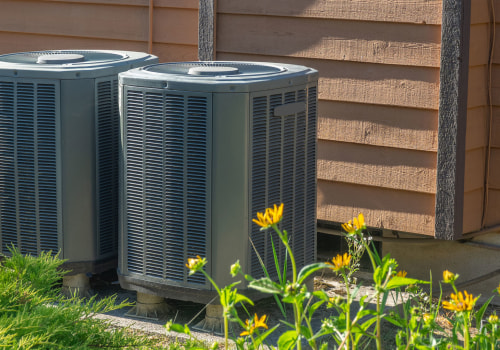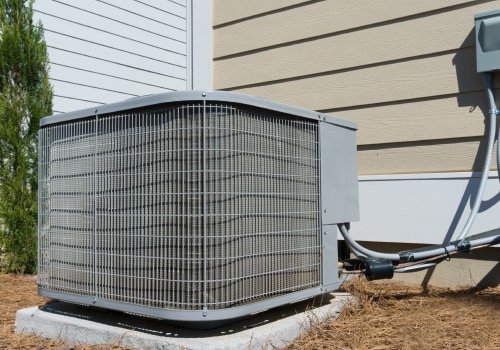How Top HVAC Companies Maximize Efficiency with 16x24x2 Furnace Air Filters
Top-of-the-line HVAC companies get the best out of 16x24x2 furnace HVAC air filters by picking superior quality ones and incorporating them suitably into the system. In most cases, filters that boast high MERV ratings capture their attention, as these trap a myriad of contaminants, significantly purifying indoor air.
Opting for a top-notch filter isn't enough, companies also maintain a regular replacement schedule to ensure the system works at peak efficiency. Aspects like allergen reduction capabilities along with a correct fit factor in, enhancing furnace efficiency, leading to energy savings, and cultivating a wholesome home environment.
There's a whole science behind maximizing your HVAC system's output with these filters. If you wish to delve deeper, these companies will help you understand every nuance.
Key Takeaways
Ensuring optimal performance, top HVAC firms utilize furnace 16x24x2 air filter sizes. This site offers maximum particle trapping along with superior airflow.
High MERV-rated filters take preference for their efficiency and ability to enhance indoor air quality.
Selection of quality air filters considers material, allergen reduction capabilities, and fit. These factors contribute to the lifespan of HVAC systems and energy efficiency.
Regular replacement of furnace filters is crucial to maintain system efficiency. During seasons of heavy use, changes become more frequent.
By combining advanced technology with routine maintenance, these companies assure smooth HVAC system operation and optimal performance.
Understanding HVAC Air Filters
To optimize furnace performance, knowing about HVAC air filters represents an essential first step. These filters serve as guardians for your HVAC system, capturing various particulates that could harm the furnace or reduce efficiency.
Different filter types exist, such as disposable fiberglass filters, washable filters, pleated filters, or electrostatic filters. Each type offers unique advantages and drawbacks, yet all contribute to protecting your HVAC system while enhancing air quality.
MERV ratings, or Minimum Efficiency Reporting Value, represent another important detail. These ratings reflect filter efficiency in trapping specific particle types. Higher MERV ratings correspond to enhanced efficiency in capturing smaller particles. However, don't hastily opt for the highest MERV rating. Striking a balance is necessary as overly efficient filters can obstruct airflow, leading to other issues.
In short, knowledge about HVAC air filters, their types, and MERV ratings paves the way for enhanced furnace performance.
Importance of the 16x24x2 Size
Grasping why 16x24x2 size matters in furnace filters goes beyond mere dimensions. It's closely linked to ensuring optimal functionality in your HVAC system. Filter measurements significantly influence HVAC performance. No random selection, 16x24x2 size has been meticulously chosen for maximum airflow while simultaneously trapping harmful particles.
This size's importance becomes clear once you grasp that undersized filters fail in effectively cleansing air, and oversized ones don't seal or fit properly. Misfit filters could result in unclean air circulating in your living space, an unwanted scenario. However, fitting the correct 16x24x2 filter ensures effective particle capture alongside optimal airflow.
The dependence of your HVAC system on this specific measurement to reach its full potential can't be overstated. Employing a 16x24x2 filter doesn't just mean fitting a component, you're enhancing your system's overall health. This size proves beneficial in reducing wear and tear, maintaining air quality, and avoiding unnecessary strain on your HVAC system.
Maximizing HVAC System Efficiency
You're probably wondering how to boost your HVAC system's efficiency. It all begins with understanding how your system works and recognizing the crucial role of air filters.
Let's also discuss the ideal filter replacement schedule to keep everything running smoothly.
Understanding HVAC System Efficiency
To enhance the efficiency of your HVAC system, grasp the significance of furnace air filters in boosting performance. HVAC upkeep plays a crucial role in managing energy use. Timely routine maintenance assures optimal system performance, thereby reducing total energy consumption.
Less energy is needed to run a well-kept HVAC system, leading to decreased energy bills. Bear in mind, that a poorly kept system exerts more effort, and uses more energy, hence, costing more in the long run. Efficiency goes beyond just having up-to-date technology, but also how well your system is kept and run.
Therefore, when thinking about your energy use and HVAC maintenance plan, recognize that optimizing efficiency involves striking a balance between the two. Routine upkeep may seem like a small investment, but it pays off by improving efficiency and lessening energy consumption.
Role of Air Filters
Diving into the crucial role air filters play in optimizing HVAC system efficiency, four key contributions emerge:
Trapping Particles: Filters catch airborne allergens, dust, along other particles, ensuring no blockage occurs in your system.
Promoting Smooth Airflow: Clear ducts, thanks to filter materials, foster smoother airflow, leading to reduced energy consumption.
Safeguarding Components: Filters protect internal HVAC unit components from damage caused by debris.
Lifespan Extension: Regular filter replacements can lead to prolonged system lifespan, saving you from hefty repair costs.
Optimal Filter Replacement Schedule
Establishing an ideal schedule for replacing your HVAC air filter can boost the efficiency of your furnace significantly. The trick lies in striking a balance between the cost-effectiveness of the filter and its performance. Conventionally, replacements should occur every three months, but this frequency might vary depending on several factors. These include the quality of air, the presence of pets, and allergies within the household.
During seasons of heavy use, such as summer or winter, more frequent filter checks might be necessary. Dirty filters cause your HVAC system to work harder, which leads to increased energy consumption and high costs. Avoid attempting to save money by delaying replacements. Investing in high-quality filters and maintaining a regular replacement schedule can result in long-term savings by ensuring the smooth operation of your HVAC system.
Role of Furnace Filters in HVACs
For optimizing HVAC systems, acknowledge furnace filters' essential role. Acting as gatekeepers, furnace filters ensure premium indoor air quality, rather than being mere components of the system.
Filter Varieties: Furnace filters come in numerous varieties for specific needs. Select from fiberglass, pleated, or HEPA filters, based on requirements, dust filtering for basic needs, controlling allergens, or removing particles with high efficiency.
Health Impact: Furnace filters significantly affect health. Failure in their function allows allergens and pollutants to circulate, leading potentially to respiratory problems or allergic reactions.
System Performance: Filters that are clean and suitable ensure optimal airflow, meaning less work for HVAC systems. This efficiency can result in reduced energy bills.
Maintenance and Longevity: Replacing filters regularly not only enhances air quality but also increases HVAC system longevity. Overworking caused by clogged filters leads to system wear and tear.
Recognizing furnace filters' significance marks the initial step toward HVAC system optimization. Remember, this isn't merely about controlling temperature - health matters too.
Benefits of Quality Air Filters
You're about to learn why investing in quality air filters pays off. Improved indoor air quality and extended HVAC lifespan are two key benefits you'll enjoy.
Let's get started on why these points matter.
Enhanced Indoor Air Quality
Quality air filters for your furnace HVAC, when invested in, can markedly improve indoor air quality, yielding numerous comfort and health benefits. Let's explore these advantages:
Reduction in Pollutants: Such filters trap harmful elements like dust, mold, and pollen, leading to a decrease in pollutants within your residential area.
Management of Allergies: Allergens get filtered out, transforming homes into comfortable sanctuaries.
Elimination of Odors: Absorbing odors, these filters keep homes smelling fresh.
Promoting Health: By managing allergies and reducing pollutants, filters contribute to a more healthful indoor environment.
Prolonged HVAC Lifespan
Quality air filters enhance indoor air quality, while also helping extend HVAC system longevity. These filters trap dust, pollen, and other airborne particles, thereby preventing debris accumulation in HVAC systems. Consequently, wear and tear decreases, saving you from expensive repairs or premature replacements.
Another significant advantage is energy conservation. With clean air filters, air circulates freely, reducing energy consumption and cutting down power bills. Regular maintenance routines, notably timely filter changes, play a crucial role. Such routines ensure the smooth operation of your HVAC system over extended periods, fostering healthier home environments.
Therefore, making a smart investment in quality air filters benefits your HVAC system's longevity, energy bills, and ultimately, your health.
Frequently Asked Questions
What Is the Average Lifespan of a 16x24x2 HVAC Air Filter?
Generally, expect approximately three months of use. However, this period might fluctuate, depending on filter efficiency plus the quality of indoor air. Monthly checks are highly recommended for optimal performance.
How Often Should I Replace My HVAC Air Filter for Optimal Performance?
Typically, for optimal HVAC performance, plan on replacing the air filter within a 30-90 day interval. Filter materials and seasonal alterations could affect this timetable. More frequent changes might be necessary during seasons of high pollen or if pets share your home.
Is There a Significant Difference in Performance Between Cheaper and More Expensive HVAC Air Filters?
Indeed, differences exist. Higher-priced filters frequently incorporate superior materials, leading to improved energy efficiency. Initial costs may be higher, but over time, lower energy bills and fewer replacements ensure savings.
Would a Different Size Filter Work Better for Certain HVAC Systems?
Undoubtedly, for certain HVAC systems, varying filter sizes might perform better. The importance of filter material, along with changes in filter due to seasons, can influence performance. Selecting the correct size for your system remains crucial.
Learn more about HVAC Care from one of our HVAC solutions branches…
Filterbuy HVAC Solutions - Weston FL
2573 Mayfair Lane Weston FL 33327
(754) 296-3528



